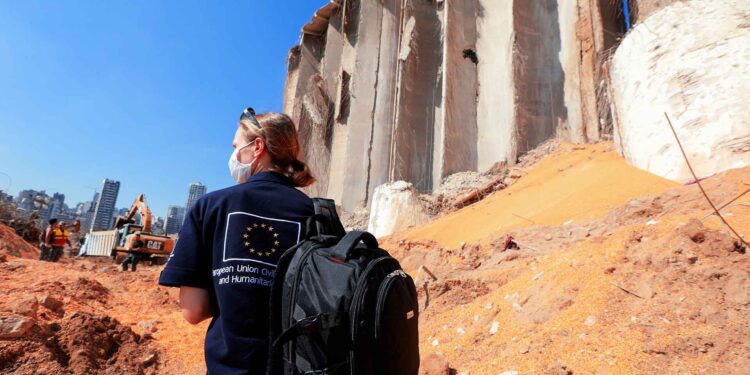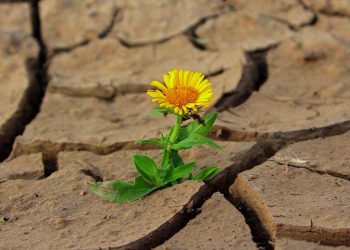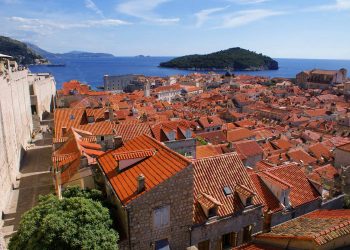The European Parliament and the Council of the European Union have reached an important political agreement to strengthen the EU Civil Protection Mechanism and the EU’s response to disasters. Following an initiative by the Commission of June 2020, the reinforcement of the EU Civil Protection Mechanism, including rescEU will give the EU a more active and flexible role in supporting Member States during emergencies.
Parliament and Council agreed to strengthen the existing legal framework on civil protection, in response to the unprecedented experience of the COVID-19 pandemic. New provisions aim to ensure that the EU and member states will be better prepared to respond to large-scale emergencies, especially when these affect several countries simultaneously.
In particular, the European Commission will be able to procure, for the first time directly at EU level, to provide additional support if needed. Additionally, as part of the Next Generation EU package, the Union Civil Protection Mechanism will receive a significant budgetary boost for the upcoming years. This will strengthen the EU’s overall preparedness on the continent.
Trilogue on EU Civil Protection Mechanism
On this occasion, Commissioner for Crisis Management Janez Lenarčič said: “When a crisis strikes, and no doubt there will be more, the EU needs to offer an effective response. This legislation is taking an important step to increase our European common level of preparedness and response flexibility towards disasters. I am grateful to the European Parliament, in particular to the rapporteur Nikos Androulakis (MEP) and Portuguese State Secretary Gaspar for their leadership. With the upgraded Union Civil Protection Mechanism Europe will become more resilient, with more capacities in place, to face future common challenges”.
rescEU reserve – EU Civil Protection Mechanism
In 2019, the EU reinforced and strengthened components of its disaster risk management by upgrading the EU Civil Protection Mechanism. The latest element introduced – rescEU – has the objective of enhancing both the protection of citizens from disasters and the management of emerging risks. In addition, rescEU establishes a new European reserve of resources (the ‘rescEU reserve’) which includes a fleet of firefighting planes and helicopters, medical evacuation planes, as well as a stockpile of medical equipment and field hospitals that can respond to health emergencies, and chemical, biological, radiological, and nuclear incidents.Why is this important?
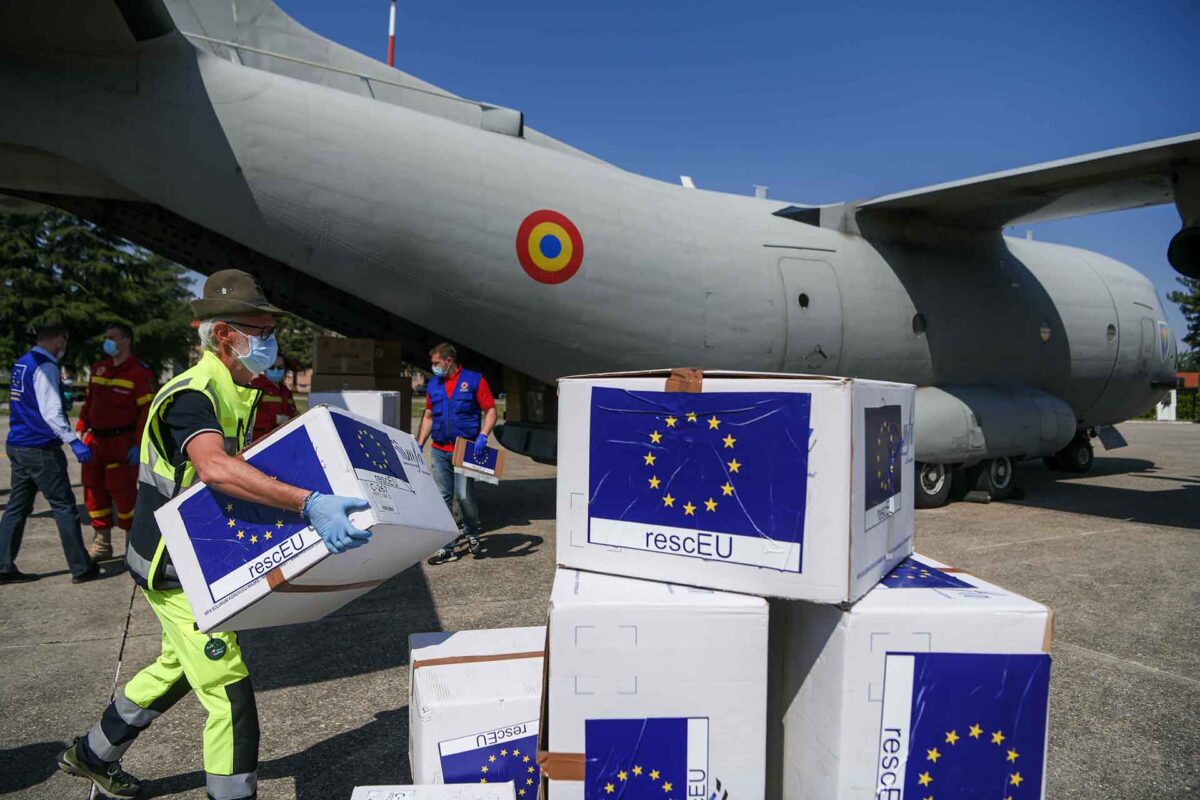
A Military airplane from Bucharest, Romania arrives in Milan, Italy bringing in DPI protections, part of Operation RescEU in the context of the COVID-19 pandemic 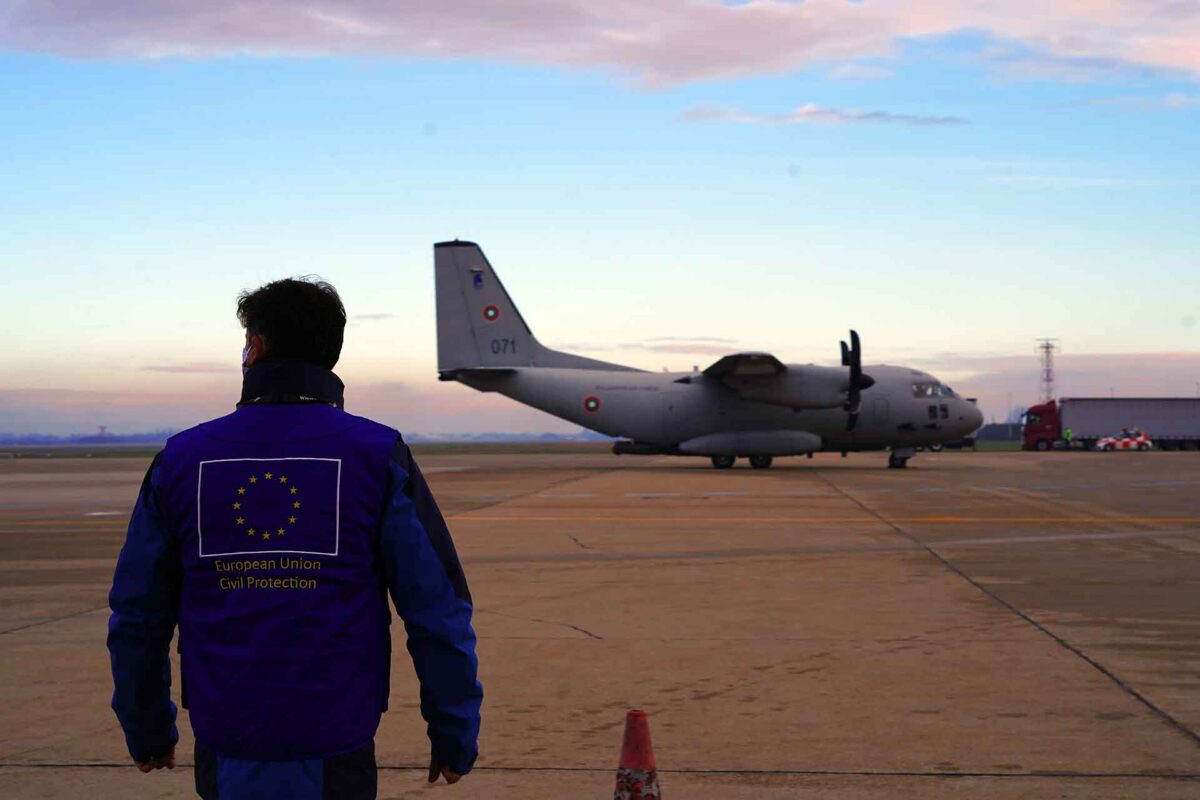
Emergency Response Coordination centre at a mission 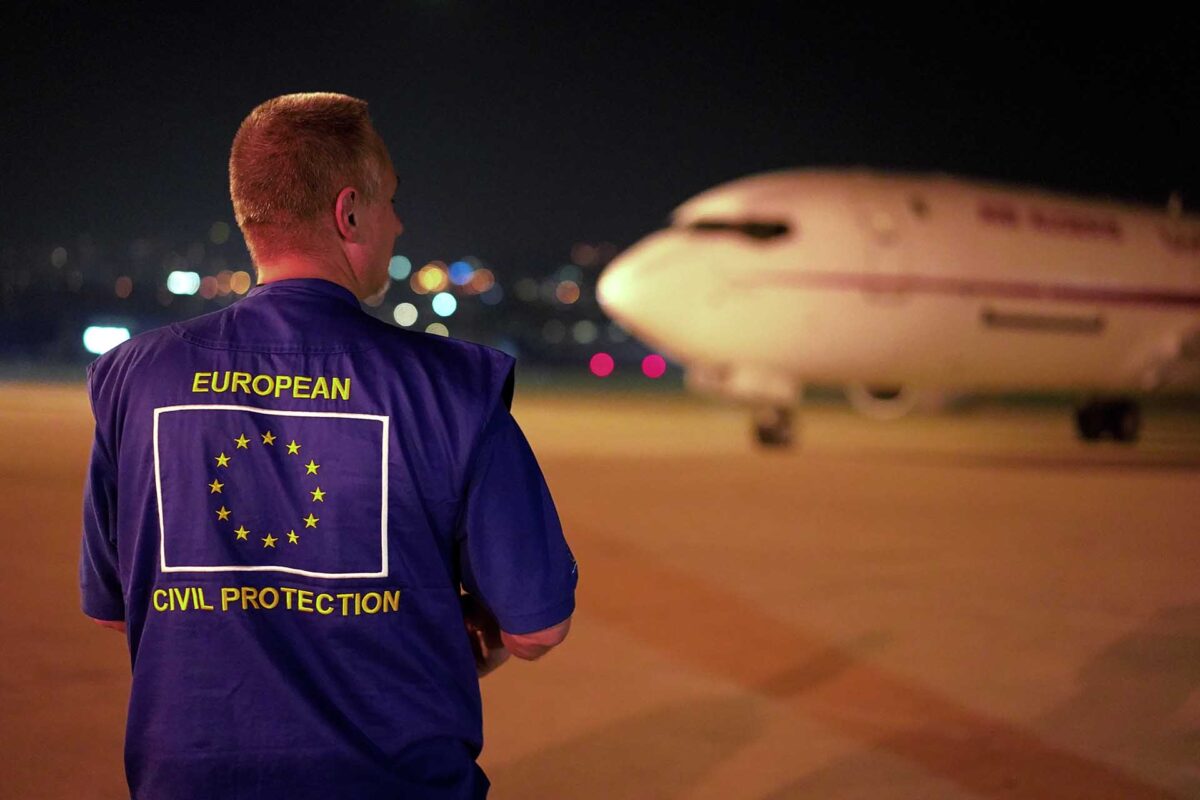
ECHO team member works for the humanitarian air bridge 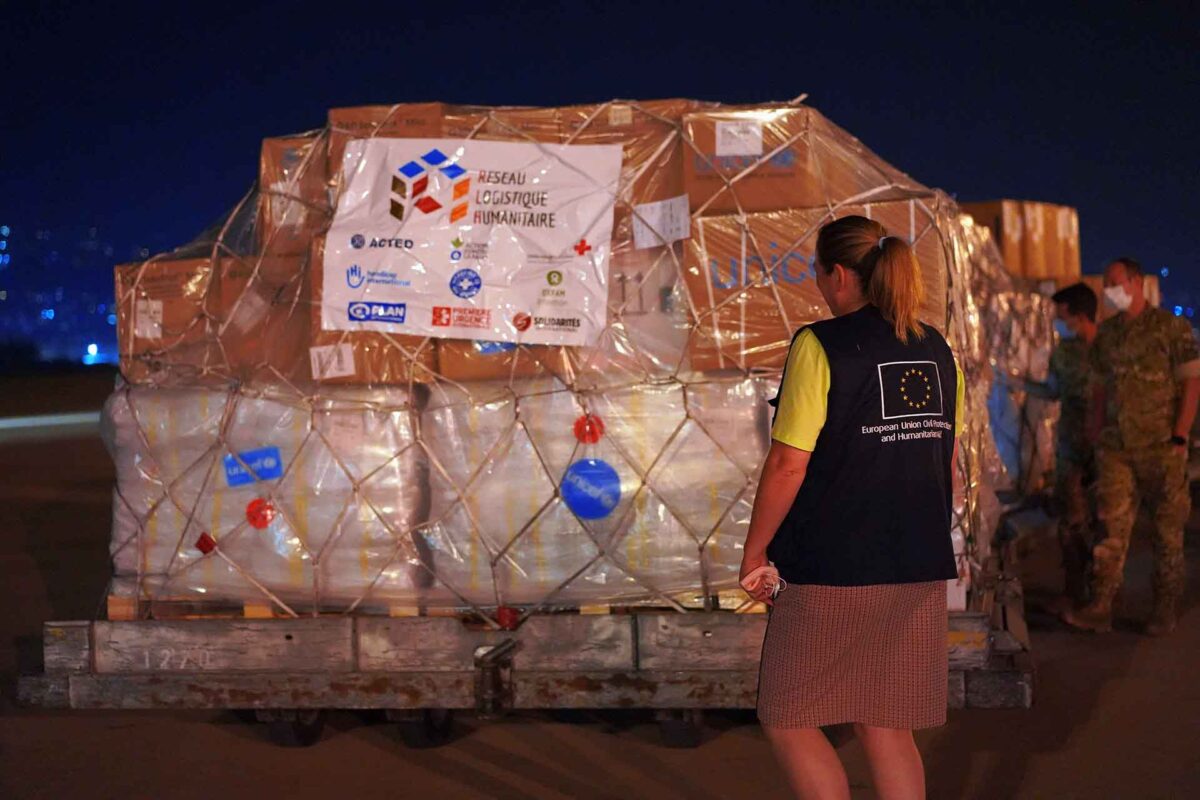
Arrival of the humanitarian air bridge 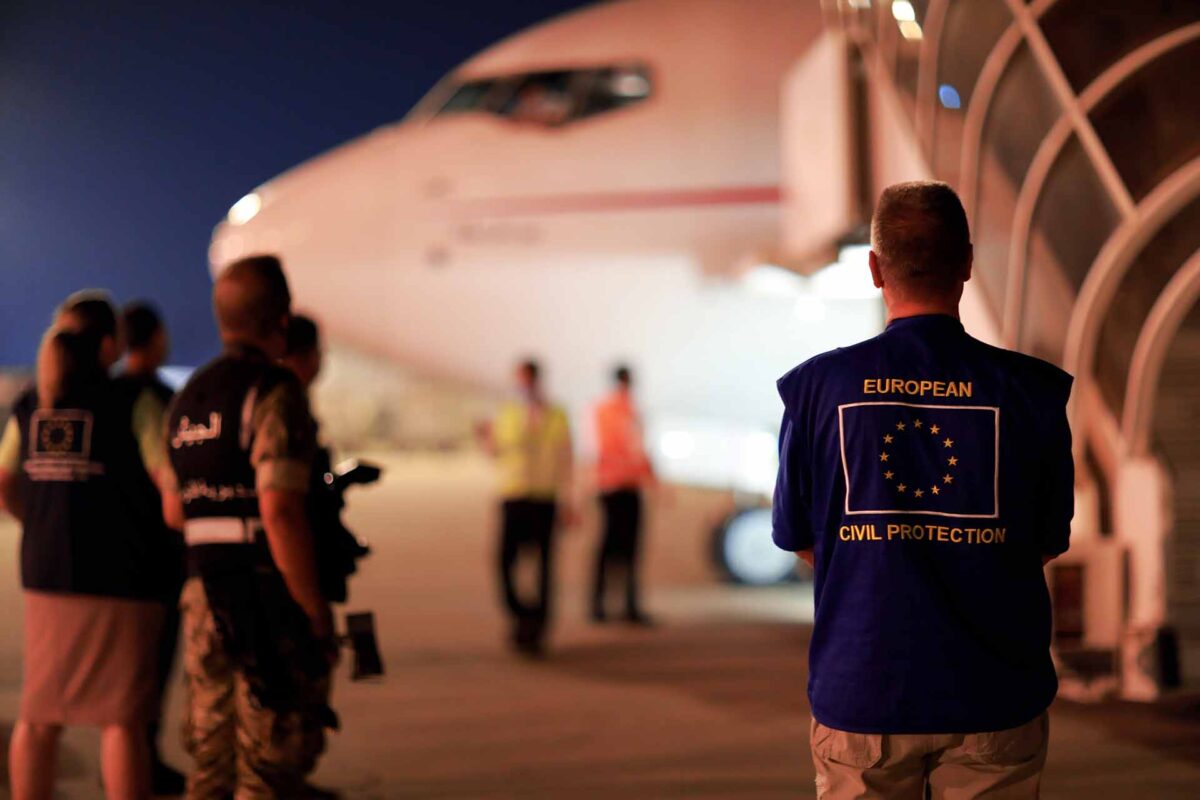
Arrival of the humanitarian air bridge 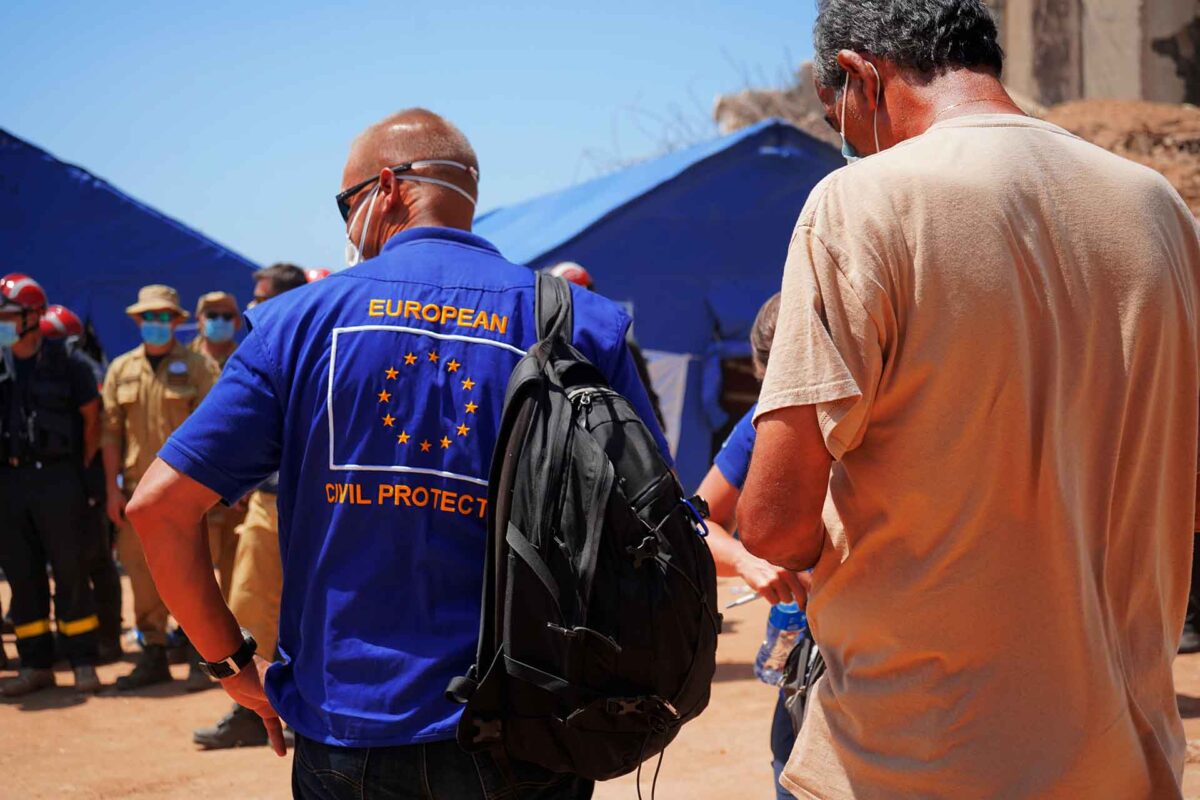
An EU Civil Protection team member
Response to disasters in Europe and abroad
The European Union plays a key role in coordinating the response to disasters in Europe and beyond. Disasters have affected every region of Europe in recent years, causing hundreds of casualties and billions in damage to infrastructure and the environment. Epidemics, flash floods, storms, forest fires, earthquakes, and man-made disasters are continuously putting countries’ response capabilities under pressure. Additionally, security concerns have become more complex and climate change will worsen the impact of disasters in the future.
Extreme weather conditions and emerging threats, such as the coronavirus, have overwhelmed the ability of Member States to help each other, especially when several countries face the same type of disaster simultaneously. In such cases, when Member States are unable to assist each other due to the high risks faced by each country, the EU provides an extra layer of protection. Through the rescEU reserve, the EU ensures a faster and more comprehensive response.
European Civil Protection Knowledge Network
The new legislative framework also leads to a stronger European Civil Protection Pool, as well as a better-strategised approach to training through a European Civil Protection Knowledge Network. In addition, it offers Member States significant incentives to enhance their national capacities through additional financing to adapt, operate and repair their resources.How are we helping?
When the scale of an emergency overwhelms the possibilities of a country to respond on its own, it can request assistance via the EU Civil Protection Mechanism. Once activated, the EU channels through the Emergency Response Coordination Centre the offers of assistance made available by its Member States and Participating States. To guarantee an effective response to disasters at all times, the rescEU reserve established in 2019 as an additional layer of protection.
Whenever rescEU resources are used for national purposes, EU action will now be more visible and receive more recognition, as countries will be required to acknowledge that the financial resources deployed have come from the EU. The Commission and member states will also define disaster resilience goals to support prevention and preparedness actions. These objectives are meant to improve the EU’s and national capacity to withstand the effects of large cross-border disasters.
A stronger EU response to the coronavirus
During the current COVID-19 crisis, the UCPM facilitated the repatriation of over 90,000 EU citizens from all over the world. Over 1.3 million protective masks, along with ventilators, personal protective equipment, therapeutics and other supplies have been procured and deployed through rescEU to support national health services. A new strategic rescEU medical reserve, currently hosted by nine EU countries, allows the EU to react to crises more quickly.
As an additional safety net, the European Commission created a strategic rescEU medical reserve and distribution mechanism under the umbrella of the EU Civil Protection Mechanism. The reserve enables the swift delivery of medical equipment such as ventilators and personal protective equipment.The stockpile, currently hosted by 9 EU Member States (Belgium, Denmark, Germany, Greece, Hungary, Romania, Slovenia, Sweden, and The Netherlands), allows the EU to react to health crises more quickly. More than 1 million of protective masks, along with ventilators and other equipment coming from the strategic rescEU distribution centres were distributed to countries who need them most. More medical and personal protective equipment is constantly being acquired to replenish the rescEU reserve.
Coronavirus closed down Italy. EU support, action and solidarity
EU preparedness for the forest fire season
For the 2020 forest fire season, the European Commission co-financed the stand-by availability of a rescEU firefighting fleet to address potential shortcomings in responding to forest fires. Croatia, Cyprus, France, Greece, Italy, Spain and Sweden put together 13 firefighting planes and six helicopters at the disposal of other EU Member States in case of an emergency in exchange for financial contribution of the stand-by costs of these capacities.
Supporting prevention and preparedness activities
The EU increased financial support also for capacities registered in the European Civil Protection Pool. The financial support can focus on adaptation and repair of capacities, as well as to cover the operational costs (inside the EU) and transport costs (outside the EU) when deployed under the EU Civil Protection Mechanism. The European Civil Protection Pool increases the predictability of the European response to disasters, ensuring that as many capacities as possible are operational before a disaster strikes.
Training, research and innovation, as well as close cooperation between national civil protection authorities, universities and researchers are essential elements for thorough prevention and preparedness activities across Europe. Via the Union Civil Protection Knowledge Network, the EU is developing a new platform for sharing knowledge, best practices and lessons learned by civil protection experts and emergency management personnel. Through the Knowledge Network, the EU intends to strengthen its European Disaster Risk Management.
Finally, the upgraded EU Civil Protection Mechanism also streamlines and simplifies administrative procedures in the long run in order to reduce the time needed to reach people in need of assistance.

